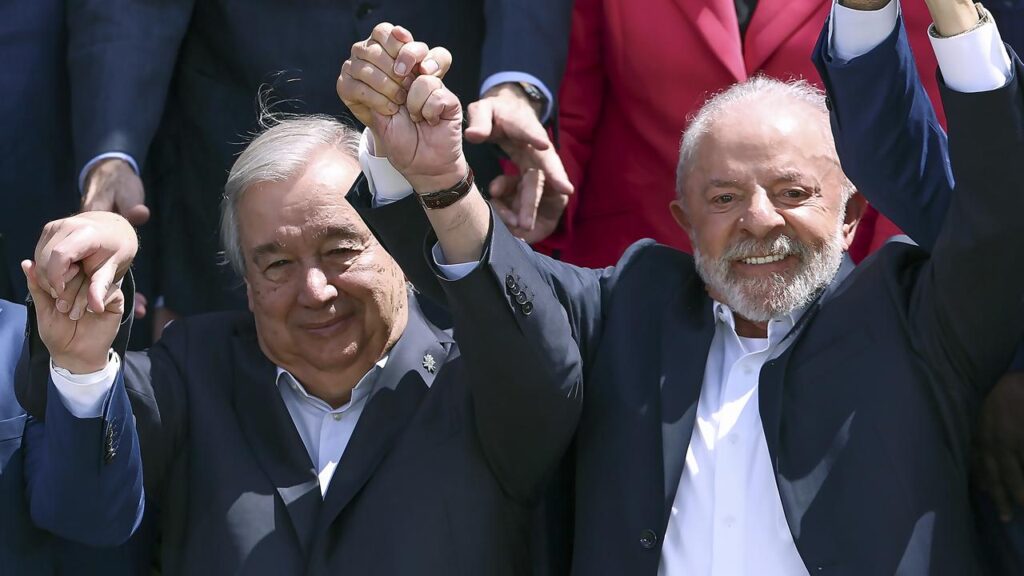Early COP30 climate deal eludes Brazil but Lula upbeat
Lisandra Paraguassu and Kate Abnett |

Brazil has failed to land an early COP30 climate deal though President Luiz Inacio Lula da Silva remained upbeat about the prospects of progress in the last two days of the summit despite differences between nations on key issues.
The Brazilian hosts of the two-week UN summit in the Amazonian city of Belem had hoped to secure approval for a deal covering some of the most divisive issues in the global climate talks, including fossil fuels and climate finance.
Lula spent the day meeting delegations from key negotiating blocs to hash out a deal.
“I am so happy that I leave here certain that my negotiators will have the best result a COP could have ever offered to the Planet Earth,” he told reporters after the meetings, referring to the acronym for the climate meetings known formally as the Conference of the Parties.
Brazil had hoped to buck the trend in which recent climate summits ran well past deadline, but a promised revised deal text did not materialise on Wednesday and was now not expected until Thursday.
Lulu and UN Secretary-General Antonio Guterres arrived at the talks as they head towards crunch time.
“You don’t generally have the president coming into the talks midway through the second week, without something to show for it,” said Mohamed Adow of the Kenyan environmental organisation Power Shift Africa

Raising the possibility of a historic outcome, Greenpeace Brazil executive director Carolina Pasquali said: “The COP is nearing the endgame and the joint arrival of both Lula and Guterres gives a clear political signal that they mean business.”
The two-week UN summit in the Amazon city of Belem has brought nearly 200 countries together to try to ratchet up multilateral action to limit climate change, despite the absence of the US, the top historic greenhouse gas emitter.
But rifts on key issues remain, posing a fresh test of the international will to slow global warming.
A central issue in the COP30 talks is whether countries will agree to develop a “roadmap” setting out how the world will transition away from fossil fuels. Burning coal, oil and natural gas is the main source of the emissions heating the planet.
Dozens of countries including Germany, Kenya and Britain have rallied behind a deal for a roadmap away from fossil fuels – but as of Wednesday, less than half of countries at the summit had publicly backed this idea.
The proposal, reviewed by Reuters, said countries would offer a roadmap to manage the shift from fossil fuels guided by the best available science on climate change, but in a “non-prescriptive” way – meaning it would not impose specific obligations on individual countries.

Pacific island nation Vanuatu’s climate minister Ralph Regenvanu told Reuters Saudi Arabia was one of those opposed to the fossil fuel plan.
Saudi Arabia did not immediately respond to requests for comment.
“I think it’s going to be very difficult … because we’ve got blockers,” Regenvanu said.
Other island nations said the issue was vital.
“We’re going to have to fight tooth and nail. There are many parties who have already said that they do not want that in the text at all,” Marshall Islands climate envoy Tina Stege told Reuters.
A coalition of 100 organisations, including companies like Volvo and Unilever, sent a letter to the COP30 presidency expressing support for a roadmap to transition away from fossil fuel use, saying it would help countries and businesses plan the shift to cleaner energy.
Other contentious issues in the package include pinning down how rich countries will provide finance to poorer countries to switch to clean energy, and what must be done about a gap between promised emissions cuts and those needed to stop temperatures rising.
Poorer countries already bearing the impacts of global warming are rallying for a strong outcome.
“We want ambition on finance. We want ambition on adaptation. We want to see ambition on the transition,” Jiwoh Abdulai, Sierra Leone’s climate minister, told Reuters.
“And we want to ensure that we live here on a path that is sustainable, not just for this generation, but for future generations.”
Reuters


